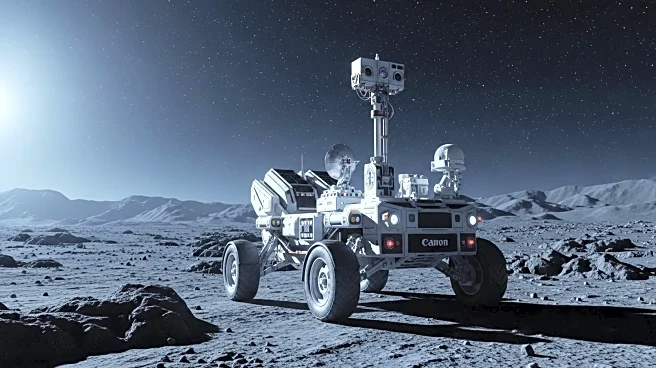What's Happening?
NASA has reinstated the VIPER moon rover mission, awarding Blue Origin a $190 million contract to deliver the rover to the Moon's South Pole by late 2027. The VIPER mission aims to locate and map water ice in permanently shadowed lunar craters, a critical resource for future human exploration. This decision comes amid increased competition in lunar exploration, particularly with China, and reflects NASA's strategic focus on securing lunar resources.
Why It's Important?
The revival of the VIPER mission highlights the strategic importance of lunar resources in the context of international competition. Water ice on the Moon is crucial for sustaining human presence and could be used for drinking water, breathable air, and rocket propellant. By mapping these resources, NASA aims to establish a sustainable American foothold on the Moon, countering China's ambitions to land astronauts by 2030. The contract with Blue Origin also strengthens the company's position as a key player in America's return to the Moon.
What's Next?
Blue Origin's success in delivering the VIPER rover will be pivotal for future lunar missions. The company is also contracted to build a human landing system for Artemis crews, serving as an alternative to SpaceX's Starship lander. The VIPER mission's findings will inform site selection for future lunar bases and contribute to the broader goals of the Artemis program. As international competition intensifies, NASA will continue to leverage partnerships with private companies to advance its lunar exploration objectives.
Beyond the Headlines
The focus on lunar resources raises ethical and legal questions about their ownership and use. As countries race to secure these resources, discussions about international agreements and regulations will become increasingly important. The Artemis Accords, an international framework for peaceful lunar exploration, aim to address these issues, but the absence of China and Russia from the accords highlights potential geopolitical tensions.









